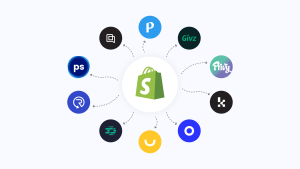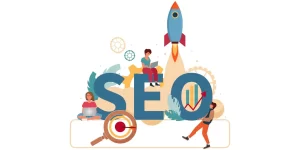
Introduction
In the fast-paced world of e-commerce, launching and maintaining a competitive online store has never been more crucial. Shopify, a leading e-commerce platform, offers businesses the tools and flexibility needed to create an engaging online experience for customers. However, the key to leveraging Shopify’s vast potential lies in hiring skilled developers who can tailor the platform to meet your unique business needs. This article provides insider tips and strategies for identifying and hiring top-notch Shopify developers, ensuring your e-commerce project is a resounding success.
Finding the Right Talent
Understand Your Needs
Before venturing into the hiring process, it’s imperative to clearly outline what you expect from a Shopify developer. Determine the scope of your project, specific functionalities you want to implement, and the timeline you’re working with. This clarity will not only guide your search but also enable potential candidates to assess their suitability for your project.
Where to Look for Shopify Developers
Exploring the right platforms is crucial in finding skilled Shopify developers. Consider leveraging professional networks like LinkedIn, development communities such as GitHub, or specialized job boards and forums that cater to e-commerce and Shopify specifically. Shopify’s own Experts Marketplace is also a valuable resource for finding vetted professionals.
Assessing Technical Skills
Understanding a candidate’s technical capabilities is pivotal. Look for developers with a strong understanding of Liquid, Shopify’s templating language, as well as proficiency in HTML, CSS, JavaScript, and experience with Shopify’s API. Familiarity with e-commerce principles, SEO best practices, and mobile-responsive design are also important.
The Hiring Process
Conducting Effective Interviews
Interviews should combine technical inquiries with questions that assess cultural fit and problem-solving abilities. Discuss past projects, challenges faced, and how they were overcome. This will provide insight into the candidate’s approach to work and problem-solving skills.
Evaluating Portfolios and Case Studies
A developer’s portfolio and case studies are tangible evidence of their capabilities. Look for projects similar in scope to yours, and assess the quality, user experience, and technical complexities addressed in their work.
Technical Assessments
Consider implementing a practical technical test that reflects the type of work the developer will be doing. This can range from debugging existing code to creating a small feature. It’s a hands-on way to evaluate skills relevant to your project’s needs.
Onboarding and Collaboration
Setting Clear Expectations
Once hired, clearly communicate project goals, milestones, and expectations. An understanding of roles and responsibilities from the outset fosters a productive working environment.
Communication and Project Management Tools
Utilize tools like Slack for communication and Trello or Asana for project management to keep the project organized and maintain a steady flow of information between all parties involved.
Building a Long-term Relationship
Fostering a strong, positive relationship with your Shopify developer can lead to ongoing support and future project collaborations. Regular check-ins and feedback sessions contribute to a mutually beneficial partnership.
Conclusion
Navigating the vast sea of development talent can be daunting, but with the right approach, finding the perfect Shopify developer to bring your e-commerce vision to life is entirely achievable. By understanding your needs, knowing where to look, effectively assessing technical skills, and fostering a healthy working relationship, you can ensure your online store thrives in the competitive digital marketplace. Remember, investing in a talented Shopify developer is an investment in the success of your business





